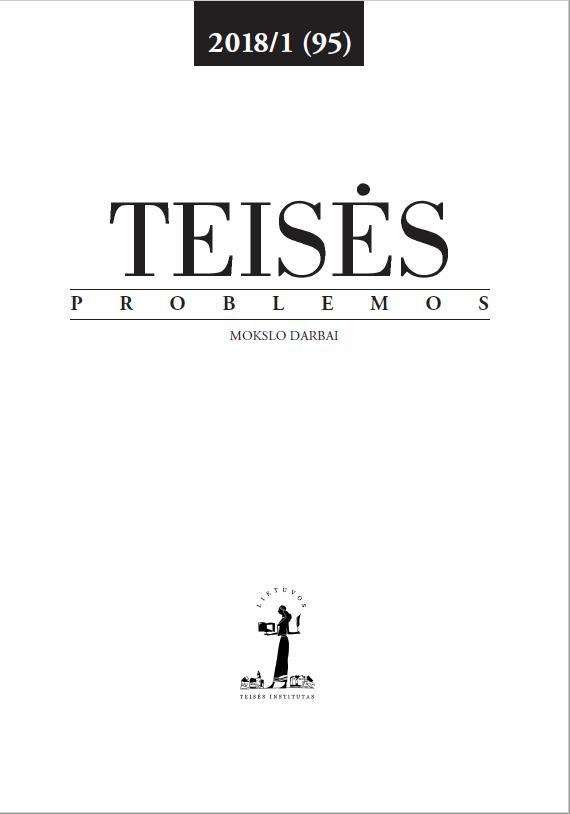Teisinė atsakomybė už akademinės etikos pažeidimus
Liability for Violations of Academic Ethics
Author(s): Johanas BaltrimasSubject(s): Law, Constitution, Jurisprudence, Ethics / Practical Philosophy, Higher Education
Published by: Lietuvos teisės institutas
Summary/Abstract: Academic ethics is a vital pillar of a successful expansion of human knowledge. Although it is in nature a moral system, some cases of academic dishonesty constitute basis for legal liability. Empirical data suggests, that violations of academic ethics is a relevant issue in Lithuania, for example, in surveys two fifths of students agree, that plagiarism is occurring in their respective, faculties and almost a third of students analogically agree about paper mills. This paper presents an attempt to evaluate, whether system of legal liability for violations of academic ethics in Lithuania meets the constitutional requirement for law to be consistent. This includes a review of general character of academic ethics in Lithuania, resulting in a classification of possible violations. Afterwards analysis of legal rules (in public law), which prescribe legal liability for these violations, is conducted and the final stage is the evaluation of their consistency. The paper is focused on legal liability according to criminal law and disciplinary procedures, which can be subject to judicial review. The former mainly include plagiarism and crimes of corruption (e. g., bribery) and the latter form of liability can be applied for almost all sorts of academic dishonesty. Research led to a conclusion, that legal regulations constitute prerequisites for legal practice, which contradicts the constitutional requirement of consistency. This means an application of legal sanctions for some violations, while similarly or more harmful violations are ignored. Such risk is increased by an uncertain definition of liable persons for the analysed crimes; inconsistency can be found in sanctions for selling and buying scholarly/scientific publications from so called “ghost writers”; for plagiarism, when the original source does not meet the requirements for a scholarly/scientific publication; and for falsifying results of a research.
Journal: Teisės problemos
- Issue Year: 2018
- Issue No: 95 (1)
- Page Range: 55-84
- Page Count: 30
- Language: Lithuanian

